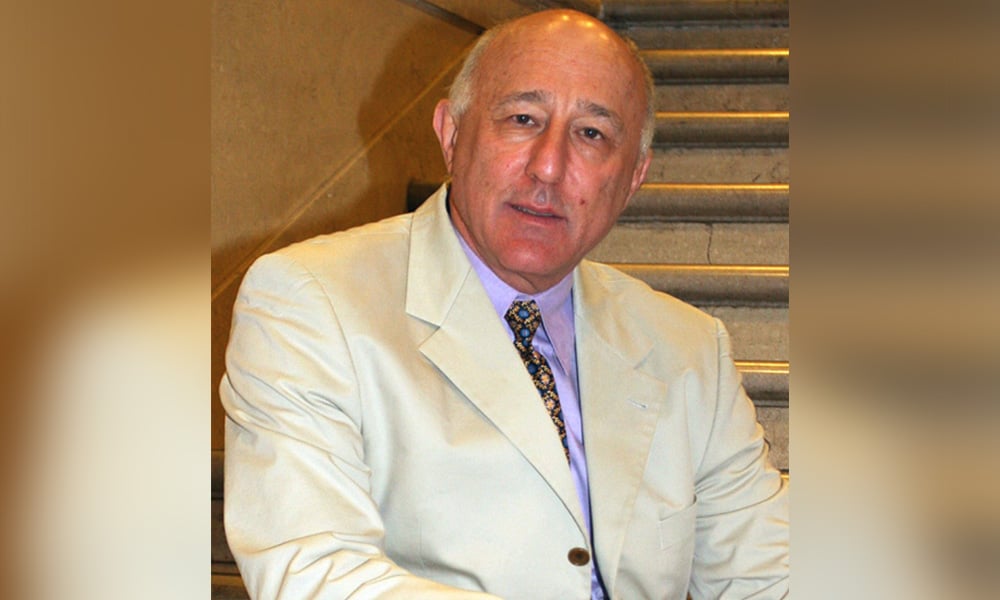
Civil litigator Mark Arnold expects judgment in April

In his latest lawsuit against the Islamic Republic of Iran, Toronto civil litigator Mark Arnold alleges the country committed an act of terrorism when it shot down Ukrainian Airlines Flight PS752.
The case began as a proposed class action, launched last January. Arnold brought a “John-Doe claim” against Iran, while class actions and civil litigation lawyer Tom Arndt sued both Iran and Ukrainian Airlines. On Nov. 9, Justice Benjamin Glustein of the Ontario Superior Court granted carriage to Arndt. Arnold’s claim continues outside of the class action and solely against Iran.
Arndt told Law Times his class action, Arsalani v. Islamic Republic of Iran, “does not allege terrorism or terrorist attack.”
On Jan. 8, 2020, an Iran Revolutionary Guard Corps air-defence unit fired two missiles at Ukrainian Airlines Flight PS752, killing all 176 people on board, including 57 Canadians.
State immunity protects foreign governments from being sued in Canada unless they are a state sponsor of terrorism. Arnold’s claim is based on ss. 83.2 and 77(c) of the Criminal Code. The former makes anyone “who commits an indictable offence at the direction of or in association with a terrorist group… guilty of an indictable offence and liable to imprisonment for life.”
Iran’s terrorism-associated indictable offence is under s. 77(c), which makes it a crime to cause “damage to an aircraft in service that renders the aircraft incapable of flight or that is likely to endanger the safety of the aircraft in flight.”
Iran has been noted in default, not having responded to the claim with a defence. Arnold has put forth a default judgment motion on whether the incident was an act of terrorism, and he expects that matter to be determined sometime in April. If successful in designating the shooting down of the plane as a terrorist act, the next phase will be to determine damages.
“We need to prove that there was a terrorist act. I believe we have sufficient evidence to prove it,” says Arnold.
Arnold is gathering expert opinions, including that of a retired Air Canada Pilot, who flew for 35 years and is familiar with the region in which the crash took place.
“The opinion we have from our Air Canada pilot is that this was an intentional act,” says Arnold.
Arnold also points to a report from the Agnes Callamard, the United Nations Special Rapporteur on extrajudicial, summary or arbitrary executions. While Iran claims the plane was “intentionally but mistakenly targeted” because military personnel mistook it for a U.S. missile, Callamard says there are “a large number of contradictions with Iran's explanations.”
The Flight PS752 crash is the latest of several actions Arnold has brought against Iran in the last 20 years. The first, Bouzari v. Iran, involved an Iranian ex-national – now Canadian – who was allegedly kidnapped, imprisoned and tortured by agents of the Iranian government. On a motion to determine whether an Ontario court had jurisdiction, the judge ruled the State Immunity Act barred the action. The Court of Appeal agreed.
Arnold then sued the son of Iran’s former president for Bouzari’s kidnap and torture. In Bouzari v. Bahremani, they alleged it was Mehdi Hashemi Bahremani (aka Rafsanjani) who had put Bouzari in prison and forced him to pay a ransom to get his passport back and leave the country. Arnold secured a judgment of $13 million. But the Court of Appeal set the ruling aside for forum non conveniens.
And then came Steen v. Islamic Republic of Iran. This case involved an Iranian-sponsored kidnapping of two Americans, in Beirut, Lebanon in the 1980s. They tried to sue Iran in the U.S. but could not collect on their judgments. They hired Arnold to get an Ontario court judgment and the case was “rolled into” a larger one covering a number of “Iranian terrorist activities,” says Arnold. Tracy v. Iran (Information and Security) “confirmed a robust and plaintiff-friendly framework for the recognition and enforcement of foreign judgments against state supporters of terrorism under the Justice for Victims of Terrorism Act,” said Lars Brusven, in CanLii Connects.